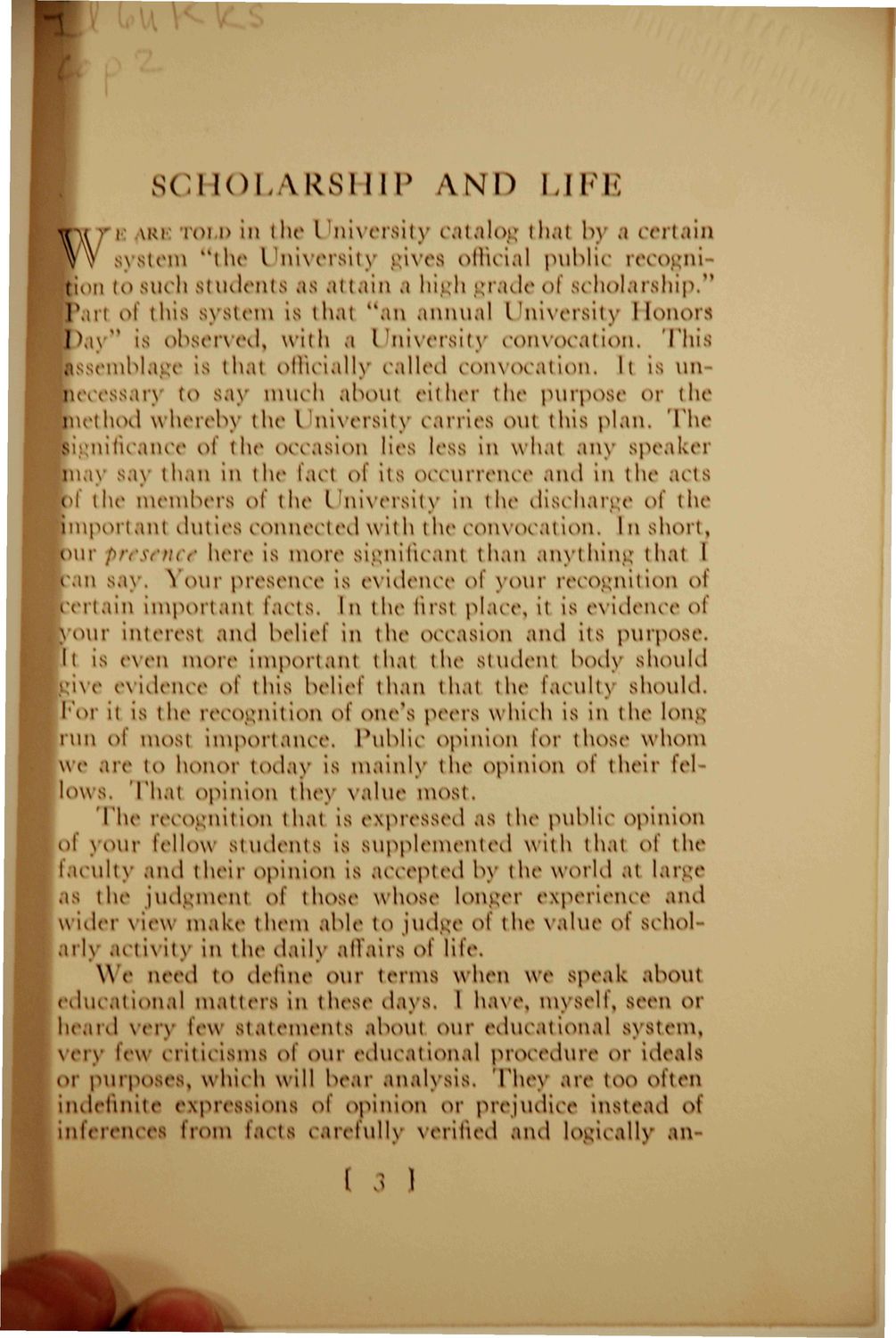| |
| |
Caption: Convocation - 1927
This is a reduced-resolution page image for fast online browsing.

EXTRACTED TEXT FROM PAGE:
S C H O L A R S H I P AND LIFE the l i m n ity catalog that b\ a certain W system "the University ^ives official public recognition to such students as attain a high grade of scholarship." Pari of this system is that "an annual I niversity Honors )ay" is observed, with a University convocation, This a emblage is that officially called convocation, It is unu\ ksarj to say much about either the purpose or the nethod whereby the University carries out this plan. The innificanee ot the* occasion lies less in what any sneakei nay say than in the fact of its occurrence* and in the acts *l tlu* members ol the University in the discharge of the mportant duties connected with the convocation, In short, >ur presence here is more* significant than anything that I an i\ . Your presence is evidence of your recognition ol certain important facts, In the first place, it is evidence ol our interest ^w<\ belief in the occasion and its purpose. It is even more important that the student body should :ive evidence of this belief than that the facultj should. Kor it is tlu* recognition of one's peers which is in the long run ol most importance. Public opinion for those whom we are to honor today is mainly the opinion o\ their fellow That opinion thej \ nine most. The recognition that is expressed as the public opinion ol your fellow students is supplemented with that of the faculty and their opinion is accepted by the world at lai e as the judgment of those whose longer experience and widei \ iew make them able to judge of the \ alue of scholarly activity in the daily allairs of life. We need to define our terms when we speak about edu atioiial matters in these days. 1 ha\ . myself, seen or heard Very few statements about our educational system. very few criticisms ol our educational procedure or ideals or purp< , which will bear analysis. They arc* too often indefinite expressions ol opinion or prejudice instead of inferences from facts carefully verified and logically anMM Yi • vHi roi i) iin I 3 1 fc
| |